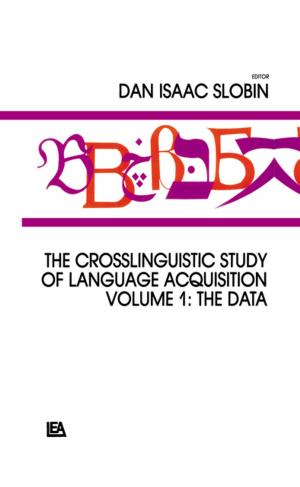Moral Theory in Santideva's Siksasamuccaya
Cultivating the Fruits of Virtue
Nonfiction, History, Asian, Asia, Social & Cultural Studies, Social Science, Cultural Studies, Ethnic Studies, Religion & Spirituality| Author: | Barbra R. Clayton | ISBN: | 9781134278282 |
| Publisher: | Taylor and Francis | Publication: | April 7, 2006 |
| Imprint: | Routledge | Language: | English |
| Author: | Barbra R. Clayton |
| ISBN: | 9781134278282 |
| Publisher: | Taylor and Francis |
| Publication: | April 7, 2006 |
| Imprint: | Routledge |
| Language: | English |
This important text analyzes the moral theory of the seventh century Indian Mahayana master, Santideva, author of the well-known religious poem, the Bodhicaryavatara (Entering the Path of Enlightenment) as well as the significant, but relatively overlooked, Siksasamuccaya (Compendium of Teachings).
With particular focus on the Siksasamuccaya, this book uses original translations and critical analysis in order to answer the question: How would Santideva’s ethics be understood in terms of Western moral theory? Santideva’s ethical presuppositions and moral reasoning are illuminated by analyzing his key moral terms and comparing them to other Buddhist principles.
By focusing on a neglected Buddhist Sanskrit text by a major Mahayana figure, Barbra R. Clayton helps to redress a significant imbalance in the scholarship on Buddhist ethics, which has - up to now - focused primarily on the ethics of the Pali literature as interpreted in the Theravada tradition.
This important text analyzes the moral theory of the seventh century Indian Mahayana master, Santideva, author of the well-known religious poem, the Bodhicaryavatara (Entering the Path of Enlightenment) as well as the significant, but relatively overlooked, Siksasamuccaya (Compendium of Teachings).
With particular focus on the Siksasamuccaya, this book uses original translations and critical analysis in order to answer the question: How would Santideva’s ethics be understood in terms of Western moral theory? Santideva’s ethical presuppositions and moral reasoning are illuminated by analyzing his key moral terms and comparing them to other Buddhist principles.
By focusing on a neglected Buddhist Sanskrit text by a major Mahayana figure, Barbra R. Clayton helps to redress a significant imbalance in the scholarship on Buddhist ethics, which has - up to now - focused primarily on the ethics of the Pali literature as interpreted in the Theravada tradition.















